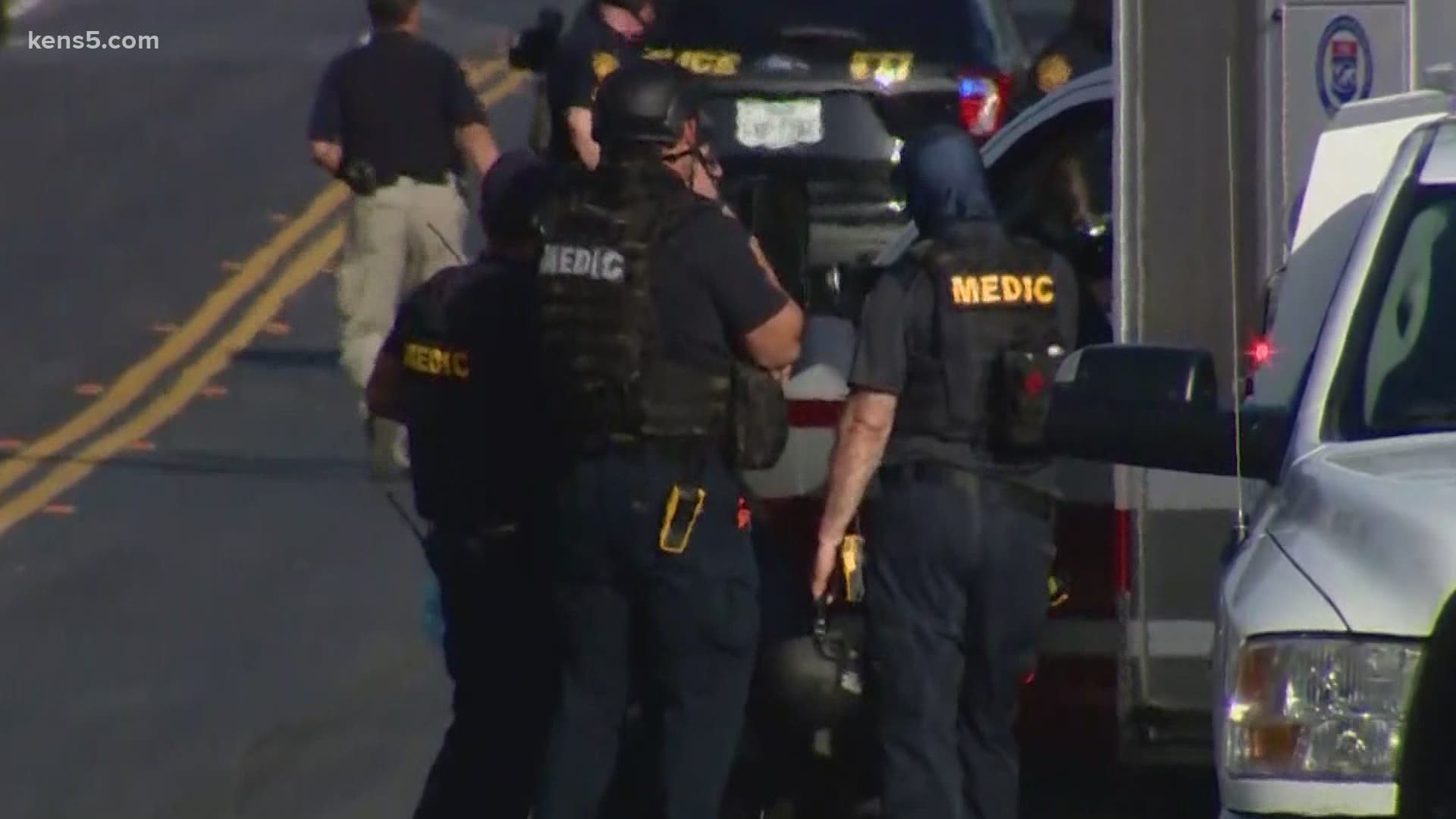SAN ANTONIO — In 2008, the San Antonio Police Department created its mental health unit. In that time, it's grown from two officers to a 16-member team.
Officer Jon Sabo has been on the force for 32 years. He's spent the last six of them with the mental health unit.
"There's a big stigma with mental illness," Sabo said. "Everybody assumes that because somebody has a mental illness they're crazy and they're dangerous and they're violent, and that's just not the case."
Sabo said their job is to de-escalate the situation and get anyone who's struggling to the care they need. Last week, he was involved in a four-hour standoff with an armed suspect at an apartment complex near Milsa Drive and Stonewall Parkway.
"We played our role as the mental health unit in assisting negotiators to a successful conclusion," Sabo said.
Sabo said what they do takes time and a lot of listening. They work to break down barriers, starting with what they wear.
"Our typical uniform is a pair of blue jeans and a pullover shirt," Sabo said.
To get a better idea of what led up to any particular situation, they ask plenty of questions to those involved.
"We're going to provide intelligence," Sabo said. "We're going to interview family members, friends, neighbors and coworkers."
In some situations, they'll make direct contact with the person who's in trouble.
"We may be the ones who talk to the person," Sabo said. "We can allow them to vent, we can allow them to calm down and then get them into services—that's really the most important thing. We don't want them to go to jail; we want to get them into services where they can get the help they need."
Even when the call is wrapped up, Sabo's work isn't done. There's still the follow-up.
"We may go back the next day," he said. "We may go back a week later and check on them and say, 'Hey, how are you doing?'"
Sabo said he's proud of the work his team is doing in the community, adding that everyone deserves the same level of care, no matter what they're going through.
"A lot of agencies are now realizing that the de-escalation is necessary," Sabo said. "More and more people call and request C.I.T. (Crisis Intervention Team) trained officers. I've absolutely seen the impact of what we do."

